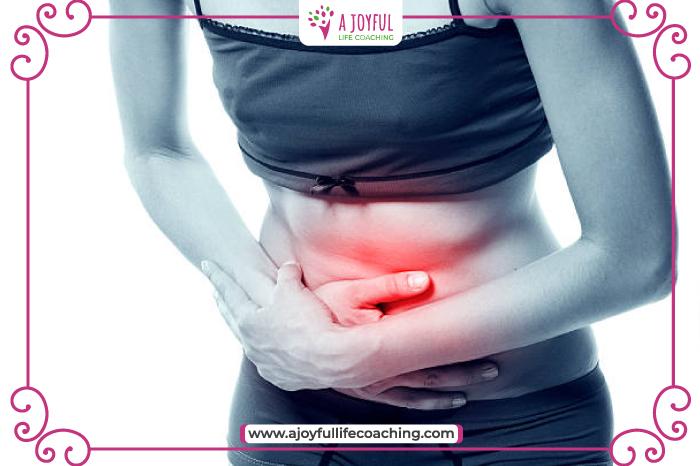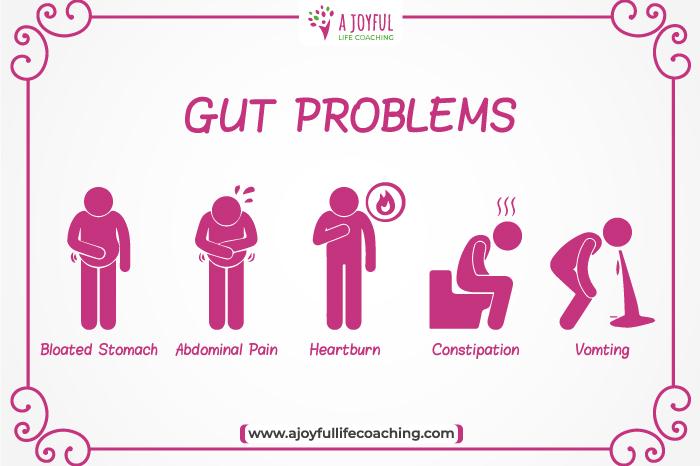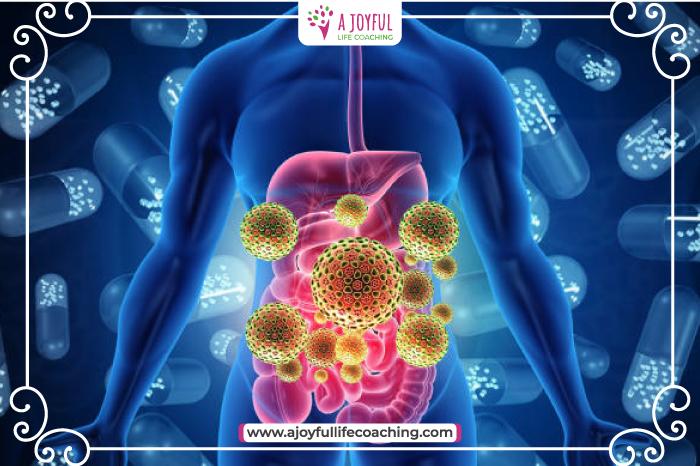Pain in the gut warns us that something is wrong inside of us that we are yet unaware of. In the United States, an estimated 66.4 million individuals had ambulatory care visits to physicians and hospitals owing to digestive disorders, according to research from the National Institutes of Health. Aside from that, 4 million people were admitted to the hospital with a primary diagnosis of digestive illness, with 18.7 million visits to the emergency room and 16.5 million admissions to the hospital. As you can see, pain in gut is a serious condition that should not be ignored.
This article will shed some light on the pain in gut you feel sometimes and how it should be treated.
What is Gut Pain?

Pain in gut may be mild, agonizing, or unbearable. The term “stomach ache” is also used for pain in the gut.
Symptoms of stomach pain might be felt anywhere between the chest and the groin area. You may experience cramps in your stomach as a result of the discomfort. If you are experiencing stomach cramps or pain, it might be due to a variety of typical digestive conditions, such as gas, bloating, diarrhea, or constipation. There may be a more significant medical issue at play. If this is the case, you should contact your doctor or the local hospital immediately for aid.
Click here to learn more about other gut health related problems and how to identify them.
Types of Gut Pain

There are numerous types of gut pains and they can sometimes be difficult to differentiate from one another.
To simplify, medical community categorize them into 3 principle types-
- Acute Abdominal/Gut Pain
- Chronic Abdominal/Gut Pain
- Progressive Abdominal/Gut Pain
If you ever experience acute gut pain, you may have to deal with the discomfort for about a week, maybe less if you are lucky. This type is the least painful and less consistent than the other types.
Chronic abdominal pain, however, is in an entirely different league. Chronic gut pain is when the pain is recurring and it lasts for months if untreated on time.
Another type of pain in gut is called Progressive Abdominal Pain which is pain getting worse over time. This type of pain is often a sign of something more serious underlying issues of your body. In any case, NEVER underestimate this type of pain symptoms!
Causes for Pain in the Gut

Gut Pain can be frequently caused by a problem in the digestive system. However, it can also be caused by other organs located in the abdomen or as a side effect of medicines. Now we will look at these causes for gut pain in the following section –
Bloating –
Your stomach will stretch when you have trapped gas in your abdomen.
Diarrhea –
Diarrhea may cause the good bacteria in your gut to flow out of your body, which will make your gut even more messed up.
Constipation –
People who have constipation usually have a low level of good gut bacteria, which can make it hard to digest food and cause more constipation and malnutrition.
Food poisoning –
Food poisoning is the result of eating contaminated, spoiled, or toxic food. It is a mixture of stomach cramps, nausea, diarrhea, and fever.
Food allergies –
An unhealthy gut may contribute to allergies, including respiratory, food, and skin allergies. Thus the microbiome may influence nutrition, skin, lungs and ultimately your whole body.
Lactose intolerance –
Lactose intolerance symptoms include nausea, cramps, gas, bloating, or diarrhea within the hours after consuming dairy products.
GERD –
GERD occurs when acidic stomach juices, or food and fluids frequently flow back into the tube connecting your mouth.
Hiatus Hernia –
Hiatus Hernia makes you feel severe chest pain with other sensations like nausea, difficulty swallowing, and bloating.
Ulcers –
Peptic ulcer develops when a bacterial infection eats away the protective lining of the small intestine or stomach.
Irritable Bowel Syndrome (IBS) –
IBS causes stomach cramps, bloating, diarrhea and constipation. It is a lifelong disease so the only thing you can do is to control it over time. Avoid foods that trigger your symptoms and control your stress to treat it naturally.
Inflammatory bowel disease –
Gas, bloating, vomiting, fever, diarrhea, bloody stool can also be symptoms of inflammatory bowel disease. It cannot be cured like other diseases but can be controlled through proper medication and diet.
Diverticular disease –
Diverticular disease can trigger serious symptoms as well as dangerous problems in certain circumstances. These consequences, if left unchecked, can lead to long-term health issues.
Gallstones –
If bile contains too much cholesterol, bilirubin, or bile salts, gallstones can develop. They can also develop if the gallbladder isn’t emptying fully or frequently enough.
Kidney Stones –
Kidney stones can cause severe pain, nausea, vomiting, fever, chills, and bloody urine.
Appendicitis –
Appendicitis can be distinguished by its specific type of pain and discomfort which involves a sudden, sharp pain that starts on the navel and shifts to your lower right or lower left of your gut.
Pancreatitis –
Pancreatitis is the inflammation of the pancreas. It can be both acute or chronic.
Bowel obstruction –
The term “bowel obstruction” refers to a blockage that prevents food or fluids from moving through your colon.
Stomach Flu –
Stomach flu is not harmful in most cases. But it can become dangerous if it leads to dehydration.
Vomiting –
Vomiting can be triggered by food poisoning, indigestion, infections like stomach flu or stomach bug.
Stress –
You might get frequent urination or diarrhea during or following a stressful event.
Urinary Tract Infection –
Symptoms of urinary tract infection include a strong, persistent urge to urinate, burning sensation when peeing, passing frequent but small amounts of urine.
Ectopic Pregnancy –
Signs of an ectopic pregnancy are vaginal bleeding and severe pelvic pain. It happens when a fertilized egg implants itself outside of the womb.
Menstrual pain –
This type of pain happens because of contractions in the uterus. It is a normal part of your menstrual cycle and pretty common for women.
Ovarian cysts –
Cysts in the ovary are caused by hormonal imbalance, or corpus luteum cyst.
Uremia –
Uremia is a serious sign of chronic kidney disease and acute kidney injury. Further diagnosis is mandatory for this type of situation.
Hepatitis –
Alcohol, side effects of certain drugs, and autoimmune diseases can also cause hepatitis other than Hepatitis virus itself.
Pneumonia –
Pneumonia is the inflammation of one or both lungs. It is caused by an infection, supposedly bacterial. The gut plays a protective role as a defense against pneumonia.
Gut Pain Diagnosis

Self diagnosis is not recommended in any medical condition. But, just to be sure of the magnitude of your pain in the gut issue, call 911 or seek help from a doctor immediately if –
- Your pain in the gut came on very suddenly or is severe
- You feel pain when you touch your stomach
- You are vomiting up blood
- Your stools are bloody or black and sticky and extremely smelly
- Peeing or pooping or farting hurts your stomach
- You cannot breathe without feeling pain in the gut
- you have severe chest pain
- You have sugar problem and you are vomiting suddenly
- You have swelling in the abdomen area
- You have burning sensation when you urinate
Treatments for Pain in Gut

Pain in the gut can be treated usually through proper medication and diet prescribed by professionals and is highly dependent on the diagnosis. So there’s no ‘one for all’ solution actually.
If your doctor feels like your conditions are not anything serious, then simple home remedies might help you with your pain. Some common remedies include –
- bitters and soda
- ginger
- chamomile tea
- apple cider vinegar
- restrict alcohol, and coffee
- stay rested
- eating small meals frequently
- drink more fluids to prevent dehydration
- eat more high-fiber foods
- avoid dairy products
Also, see how you can keep your gut healthy by following these good gut health foods.
How to Prevent Pain in Gut Related Problems

As we said earlier, not all pain in gut related problems can be cured as some of them are lifelong diseases. But most of the others can be prevented with following certain rules and diet –
Healthy diet –
Eating enough fiber can prevent constipation and keep your bowels working well, which will ultimately prevent pain in gut in future.
Water –
Drinking plain water will reduce the chance of pain from bloating as well as keeping your body healthy.
Exercise –
study showed a 62% risk reduction for duodenal ulcers in men who walked over 10 miles per week.
Meditation –
yoga, tai chi, focused breathing for stress reduction.
Proper Sleep –
maintain sleep hygiene to maintain proper immune function.
Avoid smoking and alcohol –
smoking increases ulcer formation and alcohol messes up immune function. So avoiding them is wise.
Quick Relief from Stomach Pain

We talked about preventing pain in the gut and how to treat them. But how to treat them at the moment? We rounded up some quick relief tips for you-
- Applying warmth to your belly can help soothe your pain.
- A natural antispasmodic, peppermint relaxes the gut and can help stop cramping.
- Boiling seeds of fennel in a cup of water can help instantly in relieving bloating, heartburn, gas, and loss of appetite.
- Apple cider vinegar or clove oil (2-5 drops) in a beverage before, during or after meals help in relieving pain problems.
What Does It Mean to Have a Healthy Gut?

Gut health can be thought of as the balance of bacteria in the digestive tract. Many people also call this part of their body their “Digestive System”. Your digestive system comprises a lot of different parts that work together to process and absorb the nutrients in your food. You can find out more about it in this article that I wrote.
When you eat, your body gets the nutrients it needs from the food you eat through the digestive system or the gastrointestinal (G.I.) system. When all of our digestive organs work together, we should be able to eat and digest food with no problems at all.
Gut Pain and Covid 19

A study from September 2020 found that 53% of patients with COVID-19 were hospitalized for at least one gastrointestinal (GI) symptom.
Scientists are learning more and more about COVID-19’s effects on the stomach as the epidemic progresses. An increased risk of COVID-19 severity and consequences has been seen in patients who have COVID-19 symptoms or who acquire the illness in conjunction with an underlying GI problem..
The prevalence, causes, and implications of COVID-19’s gastrointestinal symptoms will be examined in this Special Feature.
Pain in the gut can be a symptom of COVID 19 according to the contributors of the ZOE COVID Symptom Study app. It is rather rare than other dormant symptoms of COVID 19 but this is also a reason why people may overlook it. Gastrointestinal problems were reported by 25.9% of patients admitted to the hospital. It is estimated that 1 out of 5 COVID – 19 patients suffered gastrointestinal symptoms.
If you’d like further support please contact me here.


